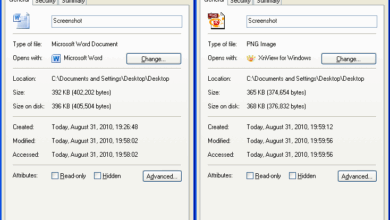What hidden charges to watch out for when booking hotels?
What hidden charges to watch out for when booking hotels? This question looms large for travelers seeking to make the most of their vacation budgets. As you prepare for your getaway, it’s essential to navigate the often murky waters of hotel pricing where additional fees can derail your plans and inflate costs unexpectedly. Understanding these charges can empower you to make informed decisions and avoid unpleasant surprises upon check-in.
In this exploration, we delve into the common hidden charges that plague hotel bookings. From service fees that pepper your bill to resort fees that seem to appear from thin air, we’ll uncover what these charges entail and how they affect your total costs. Additionally, we’ll analyze the discrepancies across various booking platforms, highlight the importance of understanding cancellation policies, and explain the taxes and surcharges that can alter your final price.
Common Hidden Charges: What Hidden Charges To Watch Out For When Booking Hotels?

When booking a hotel, travelers often focus on the advertised rate but can be caught off guard by various hidden charges that significantly increase the final price. Understanding these additional costs is essential for budgeting and can help avoid unpleasant surprises during check-out.Among the most frequently encountered hidden charges are service charges and resort fees. These fees may not be included in the initial room rate and can vary widely depending on the hotel and its location.
It’s crucial to be aware of these charges to accurately assess the total cost of your stay.
For business travelers looking for top-notch accommodations, finding the right hotel can make all the difference. Many establishments are tailored specifically for this purpose, ensuring amenities that cater to professionals. To explore the best options available, check out What are the top hotels rated for business travel? that provide excellent services and facilities to enhance your work trips.
Typical Hidden Fees, What hidden charges to watch out for when booking hotels?
Service charges are often added to the final bill for various reasons, such as housekeeping, maintenance, or administrative fees. Here are some common service charges that travelers might encounter:
- Cleaning Fees: Some hotels impose a cleaning fee, especially for longer stays or specific room types, to cover the costs associated with maintaining cleanliness.
- Booking Fees: Online booking platforms or third-party agencies may charge service fees for facilitating your reservation.
- Wi-Fi Charges: While many hotels now offer free Wi-Fi, some still charge for internet access, particularly in premium or business class settings.
- Parking Fees: Hotels may charge for on-site parking, especially in urban areas, where parking space is limited and valuable.
Another prevalent hidden charge is the resort fee, which is a mandatory additional charge imposed by many hotels, particularly in resort areas. This fee typically covers a range of amenities and services, but the specifics can vary significantly. Understanding what these fees include is essential:
- Amenities Access: Resort fees often cover access to pools, fitness centers, and recreational facilities.
- Local Calls: Some hotels include costs for local phone calls within the resort fee.
- Scheduled Activities: Fees might encompass organized events or activities offered by the hotel, enhancing guest experience.
- Wi-Fi Access: Many resorts bundle Wi-Fi into the resort fee, even if free Wi-Fi is available in some areas.
Understanding these potential fees before booking can lead to more informed decisions and a smoother travel experience.
Booking Platforms and Their Fees
When booking hotels, the platform you choose can significantly impact the total cost due to various hidden charges. These fees can vary widely depending on whether you’re using a third-party booking site or booking directly through the hotel. Understanding these differences is essential for travelers looking to save money and avoid unexpected costs.Various booking platforms often have distinct fee structures, which can lead to hidden charges that may not be immediately apparent.
For instance, some websites may advertise lower rates but then add service fees, currency conversion charges, or booking fees at checkout. Other platforms, especially those that cater to budget-conscious travelers, might offer enticing prices but include mandatory fees for amenities that could inflate the total cost.
Comparison of Third-Party Services and Direct Booking
Using third-party booking services can save time but may come with additional costs that negate any initial savings. It’s essential to consider these potential fees when deciding where to book your hotel. Here are some hidden charges you might encounter:
- Service Fees: Many booking platforms charge a service fee that can range from a few dollars to a percentage of the booking cost. This fee is often not included in the initial price displayed, leading to surprises at checkout.
- Cancellation Fees: Some platforms impose strict cancellation policies that can result in significant fees if plans change. Understanding the cancellation policy before booking is crucial.
- Credit Card Processing Fees: Certain services add fees for credit card transactions, which can increase the overall cost of your stay.
- Conversion Fees: If booking in a different currency, conversion fees may apply, especially with third-party payment processors.
Booking directly with hotels can often be a more economical choice. Major hotel chains frequently offer the best rates on their official websites, often coupled with loyalty rewards programs that provide additional savings or perks. For example, Marriott and Hilton often have exclusive discounts for members, providing not only lower prices but also benefits such as room upgrades or free breakfast.
Traveling with pets can often complicate hotel stays, but many places are becoming more pet-friendly. If you’re wondering which hotels allow your furry companions to stay with you, it’s essential to research your options. Discover more about the best choices by visiting Which hotels allow pets to stay with guests? , where you’ll find a comprehensive guide to ensure both you and your pet have a comfortable stay.
Booking directly can lead to better customer service as hotels prioritize their own guests over third-party bookings.
In addition, when booking directly, guests may have more flexibility regarding room choices, cancellation policies, and potential upgrades. A direct booking often results in clearer communication about amenities included in the price, reducing the likelihood of encountering unwelcome surprises at check-in. By understanding the differences in fees across various booking platforms and the benefits of direct hotel bookings, travelers can make informed decisions that enhance their travel experiences and optimize their budgets.
Cancellation and Modification Policies

When planning a trip, it’s essential to understand the implications of cancellation and modification policies associated with hotel bookings. While the excitement of securing a room can overshadow practicality, knowing these policies can prevent unexpected expenses that may arise should plans change. Many travelers fall victim to hidden fees related to cancellations or changes, significantly affecting their travel budget.The costs attached to altering or canceling a reservation can vary greatly depending on the hotel’s policies.
Some hotels offer flexibility, while others impose strict fees. It’s crucial to distinguish between refundable and non-refundable rates, as they come with very different consequences. Understanding these distinctions can save you from unnecessary losses or inconveniences.
Understanding Non-Refundable and Refundable Rates
Non-refundable rates typically offer lower prices but come with the risk of losing your entire payment if you need to cancel. Conversely, refundable rates are more flexible, allowing you to recover your payment, albeit often at a higher initial cost. Here’s a breakdown of the implications:
- Non-Refundable Rates:
Ideal for travelers with fixed plans; however, cancellation can lead to a 100% loss of payment.
These rates might be enticing due to their lower price point, but if there is any chance your plans may change, it’s wise to think twice.
- Refundable Rates:
These rates provide peace of mind; cancellations often incur a small fee or are completely free within a specific timeframe.
While the cost may be higher, the ability to modify your booking or receive a refund in case of changes can justify the expense.
Reading the fine print in hotel policies is paramount. Many guests overlook crucial details that can lead to unexpected fees or restrictions. Policies regarding cancellations, modifications, and associated fees can vary not just from hotel to hotel, but also across different booking platforms. It’s advisable to check the specific details of your reservation, focusing on:
- Cancellation timelines: Many hotels have stated periods within which you can cancel without penalty.
- Modification fees: Some hotels charge a fee for altering a reservation, which can add up quickly.
- Exceptions to policies: Certain situations, such as natural disasters or medical emergencies, may allow for exceptions, but these are not guaranteed.
Taking the time to understand these elements can help travelers avoid unnecessary financial strain, ensuring that their hotel booking experience is as smooth as possible.
Taxes and Surcharges
Hotel pricing often extends beyond the advertised room rate, with various taxes and surcharges adding to the overall cost. These additional fees can significantly affect the total amount you pay, making it crucial to understand what to expect when booking accommodations.Different regions impose varying tax rates on hotel stays, which can lead to discrepancies in pricing. For instance, city taxes, state taxes, and resort fees can all contribute to the final bill, and not every hotel will include these in their initial quotes.
Understanding these charges is vital for budgeting your travel expenses effectively.
Types of Taxes Affecting Hotel Pricing
Several types of taxes can impact the final price of your hotel stay. Below is a summary of common taxes:
- Sales Tax: A general tax applied to the sale of goods and services, including hotel stays. Rates can vary significantly by location.
- Occupancy Tax: Often imposed by municipalities, this tax is charged per occupied room per night, with rates ranging from 1% to 15% depending on the city.
- Tourism Tax: A fee levied by some cities to promote tourism, which can be a flat rate or a percentage of the room rate.
- Resort Fee: A surcharge often added by hotels to cover amenities like pool access and Wi-Fi. This fee can vary widely and may not be included in the quoted rate.
Variations in Tax Rates by Location
Taxes associated with hotel stays can vary dramatically from one location to another. For instance, a hotel in New York City may have a combined occupancy and sales tax rate of around 14.75%, while a hotel in Orlando might have a considerably lower total rate of approximately 12.5%. This difference can substantially impact the overall cost of a stay.To understand how location affects pricing, consider the following table detailing common surcharges and their typical rates in various cities:
| City | Sales Tax Rate | Occupancy Tax Rate | Resort Fee (Typical Range) |
|---|---|---|---|
| New York | 8.875% | 5.875% | $20 – $50 |
| Las Vegas | 8.25% | 13.38% | $30 – $45 |
| Orlando | 6.5% | 6.0% | $10 – $30 |
| Los Angeles | 10.25% | 14.0% | $25 – $50 |
Understanding these taxes and surcharges will empower travelers to make informed decisions, ensuring that they account for all costs associated with their hotel stays.









